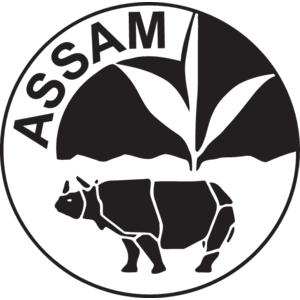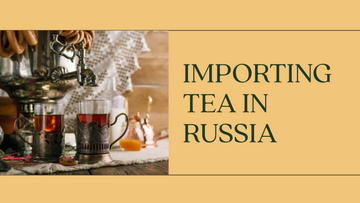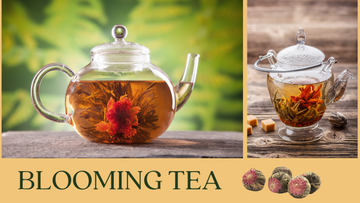
All You Need to Know About Assam Teas
We Indians love our chai! A hot cup of tea makes everything better.
Assam is to Indian tea what Minas Gerais is to Brazilian coffee. The Assam Tea Gardens are world-renowned for their high-quality tea.
Assam tea was discovered by Robert Bruce, a Scottish adventurer in 1823. After which, in 1839, the Assam Tea Company was set up as the first company for growing and selling tea in Assam. It expanded steadily and came to the notice of the East India Company who allowed for significant parts of the province to be converted to tea plantations and the rest is history.
The Assam Teas
Situated in the North-East of India and surrounded by the northern Himalayas, the Brahmaputra plains, and the Deccan Plateau, Assam is one of the most fertile areas in the country. The loamy soil, warm climate, and dense rainfall make the Assam Tea Gardens what they are today!
Assam Tea is harvested twice a year — once in late March till late May and then in June. The June leg of the harvest produces ‘tippy tea’, which is considered fuller, sweeter, and therefore, superior to the tea produced during the first leg.
Assam tea is produced in two varieties — Orthodox and Crush, Tear, Curl (CTC). The CTC method is used for making the broken leaf, fannings, and dust grades of Assam Tea while the whole leaf grade is made using the orthodox method. The famous English Breakfast tea and other breakfast tea blends are made using Assam Tea, because of its strong, brisk, and malty flavor.
The Assam Tea Gardens
While Assam is replete with tea gardens, the most popular ones are listed below:
- Nanoi Tea Estate: This Assam Tea Garden is spread over a sprawling 959.17 hectares of land and produces 10 to 10.50 lakh kilograms of tea of both the Orthodox and CTC variety.
- Monabarie Tea Estate: Touted to be the largest Assam Tea Garden, Monabarie is famous for its heavenly chai aroma and the deep red-colored tea leaves.
- Halmari Tea Estate: With a legacy of more than 120 years of producing the finest Assam tea, this tea garden holds the record of the highest-priced tea estate in Assam. It is also famous for its tea tasting.
- Manohari Tea Estate: A super hit at tea auctions, this Assam Tea Garden is located at an elevation of 390 ft. and produces close to 5 lakh kilograms of tea annually.
- Mangalam Tea Estate: This Assam Tea Garden is situated at the bank of the Towkok river and beside a government reserve forest, adding to its picturesque value. It produces high-quality CTC and Orthodox tea.
- Corramore Tea Estate: The Assam Tea Garden is focused on harvesting the Camellia sinensis species on its massive campus of 480 hectares of land.
- Wild Mahseer Tea Estate: Its beautiful blend of colonial and Assamese architecture combined with its high-quality tea, makes Wild Mahseer a must-visit!
- Harmutty Tea Estate: Known for its strongly brewed Assam tea, Harmutty is located in the scenic backdrop of Arunachal Pradesh and should be on the list of all Assam tea aficionados.
- Ghograjan Tea Estate: This Assam Tea Garden produces the highest quality CTC and Orthodox tea in the region and has been involved in the tea plantation business for more than 5 generations.
- Khongea Tea Estate: The tea produced at Khongea is especially strong and is known for its beautiful golden tipped leaves.
- Joonktollee Tea Estate: This Assam Tea Garden is credited with holding the single largest tea factory in Assam. It produces quality CTC, Orthodox, and green tea.
- Cinnamora Tea Estate: The journey of Assam Tea started from Cinnamora. Every year, hundreds of tourists visit it to get a taste of the delightful tea and also the interesting history behind it.
- Sonapur Tea Estate: The biggest contributor to the famous Wagh Bakri Chai, this Assam Tea Garden is owned by the same family for more than three generations, ever since its inception during the colonial period.
- Assamica Agro Organic Farm: This Assam Tea Garden holds the unique title of the healthiest and most ethical producer of Assam tea. It produces pesticide and chemical-free, organic tea and has redefined the Assam tea experience!
- Beesakopie Tea Estate: The third-largest Assam Tea Garden in the state, it is settled close to the Burmese border and is famous for its supremely malty Assam tea.
- Amchong Estate: It manufactures CTC tea generally and forayed into the production of Orthodox tea in 2015. It has the potential to produce 10 lakh kilograms of tea annually and has a very high demand at tea auctions.
- Teloijan Tea Estate: This Assam Tea Garden offers a superior tea tasting experience and has a constant quality upgradation process in place to ensure that the Assam tea that it produces is extremely high-quality.
- Sapoi Tea Estate: Along with producing high-quality tea, this Assam Tea Garden provides an amazing experience for tourists. Visitors can cycle around the stunning 2600 acre campus and learn about tea making and engage in tea tasting.
- Nagrijuli Tea Estate: This estate produces tea with sappy bright liquor which has the refreshing quality of perpetual spring. It is full of beautiful flora and fauna and is a must-visit for all!
- Jalinga Tea Estate: The estate is situated on infertile land and has therefore shifted to organic farming, making it a pesticide and chemical-free tea producer. It produces approximately 6000 MT of compost every year and conserves 400 acres of forest.
- Mornai Tea Estate: This is the only Assam Tea Garden located at the Assam-West Bengal border and is spread over 1644.19 hectares of land. It is owned and run by a church and is known for its high-quality tea production.
- Tippuk Tea Estate: This Assam Tea Garden is famous for its CTC and Orthodox tea, especially in western India, Germany, UK, the USA, and the Middle East.
- Hattigor Tea Estate: The plantation covers 977.21 hectares. In this Assam Tea Garden, the capacity of tea production is 2.5 lakh kilograms of CTC tea and Orthodox tea.
- Borbam Tea Estate: This Assam Tea Garden is famous for its bright, strong CTC tea which is popularly called Borbam Delight Assam Tea. It is also known for being the place where the CTC machine was invented by its first manager, Sir William McKercher.
- Borpatra Tea Estate: As much as it is famous for its good quality, immunity-boosting green tea, Borpatra is also known for its environmentally-conscious operations. It is run on renewable energy and has a splendid waste management system.
- Seleng Tea Estate: This Assam Tea Garden is famous for its robust CTC and Orthodox tea. It also houses indigenous tea plants named Camellia sinensis var. Assamica.
- Gatoonga Tea Estate: This Assam Tea Garden offers the whole tea garden experience. Visitors can stay at the Banyan Grove, engage in tea tasting, tea making, and the works.
- Manjushree Tea Estate: It is famous for very tippy teas with high-class liquor and strength popular with German buyers. It is also credited with the reintroduction of Orthodox tea in Upper Assam.
- Muktabari Tea Estate: Muktabari produces 9 Lakh kilograms of supreme quality and strong liquoring CTC Assam Tea annually.
- Ratanpur Tea Estate: Located on the banks of the Teok river, its teas are celebrated for their rich, deep-amber liquor and incredible briskness.
Final Words
While Assam is home to many more tea such gardens, zeroing down on one may become a hassle. Mittal Teas is a tea garden aggregator, retailer, and exporter that helps importers, HoReCa, or tea brands from around the world by making the selection of the right tea for them a seamless experience! Since its inception in 1954, Mittal Teas has established itself as the best in the business, with its impeccable price negotiation, tasting, and exporting endeavors.




